2023 Jean Dreyfus Lectureship for Undergraduate Institutions Recipients

The Camille and Henry Dreyfus Foundation is pleased to announce eight new grants in the Jean Dreyfus Lectureship for Undergraduate Institutions program.
The Jean Dreyfus Lectureship awards provide an $18,500 grant to bring a leading researcher to a primarily undergraduate institution to give at least two lectures in the chemical sciences. One of the lectures should be accessible and promoted to a wide audience that includes the general public. The remaining lecture(s) may be more technical. The lecturer is expected to spend more than one day at the institution to substantively interact with undergraduate students and a broad range of faculty over the period of the visit.
A portion of the award is to support two undergraduates in summer research. The undergraduates engaged in summer research are expected to work with mentors in contemporary chemistry.
2023 Jean Dreyfus Lectureship for Undergraduate Institution Recipients
Bard College
Annandale-on-Hudson, NY
Colorado State University Pueblo
Pueblo, CO
Harvey Mudd College
Claremont, CA
Idaho State University
Pocatello, ID
Illinois State University
Normal, IL
State University of New York at New Paltz
New Paltz, NY
Tennessee Technological University
Cookeville, TN
West Chester University
West Chester, PA
2023 Henry Dreyfus Teacher-Scholar Awards

The Camille and Henry Dreyfus Foundation is pleased to announce the selection of eight new Henry Dreyfus Teacher-Scholars for 2023. The award honors young faculty in the chemical sciences who have created an outstanding independent body of scholarship and are deeply committed to education with undergraduates. Each Henry Dreyfus Teacher-Scholar receives an unrestricted research grant of $75,000.
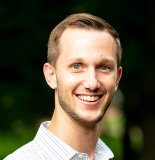
Michael Bertucci, Lafayette College
Characterizing and Modulating Bacterial Quorum Sensing Systems with Synthetic Peptides

Tim Kowalczyk, Western Washington University
Excited-State Electronic Structure Driven Design of Photoactive Organic Materials

Tyler Meldrum, William & Mary
Understanding Macroscopic Material Behavior by Measuring Microscopic Molecular Motion via Single-Sided NMR Relaxometry

Heather Miller, High Point University
Molecular Mechanisms behind Small Molecule Adjuvants that Combat MRSA

Scott Simpson, St. Bonaventure University
Using Computational Chemistry to Solve Environmental Problems

Monica So, California State University, Chico
Charge Transport of Complex Materials

Eric Villa, Creighton University
Bridging Solution- and Solid-State Chemistries: Exploring Polyoxometalate Ion Reactivity and Targeted Syntheses of Lanthanide Materials

Amanda Wolfe, University of North Carolina Asheville
Developing Novel Antibiotics and Adjuvants to Combat Pathogenetic Bacterial Infections
The Dreyfus Foundation and American Chemical Society Announce Two New Awardees
The American Chemical Society (ACS) recently announced the winners of two Dreyfus Foundation-supported awards aimed at diversity in the chemical sciences as part of their 2024 National Award Winners.
 The 2024 ACS-Dreyfus Award for Encouraging Underrepresented and Economically Disadvantaged Students into Careers in the Chemical Sciences went to Dr. Scott T. Wills, R&D Staffing Leader, Core R&D: Talent and Growth, at Dow, “for his passionate efforts as a champion for deaf and hard-of-hearing (deaf/hh) STEM students in the chemical industry.”
The 2024 ACS-Dreyfus Award for Encouraging Underrepresented and Economically Disadvantaged Students into Careers in the Chemical Sciences went to Dr. Scott T. Wills, R&D Staffing Leader, Core R&D: Talent and Growth, at Dow, “for his passionate efforts as a champion for deaf and hard-of-hearing (deaf/hh) STEM students in the chemical industry.”
The award – established in 1993 to recognize significant accomplishments by individuals in stimulating students, underrepresented in the profession, to elect careers in the chemical sciences and engineering – consists of $5,000 and a certificate. A grant of $10,000 is also made to aneligible non-profit institution, designated by the recipient, to strengthen its activities in meeting the objectives of the award.
 The 2024 ACS-Dreyfus Award for Encouraging Women into Careers in the Chemical Sciences went to Dr. Elsa Reichmanis, Anderson Chair in Chemical Engineering in the Department of Chemical and Biomolecular Engineering at Lehigh University, for her role as “as an established technology leader as well as a role model, strong advocator and mentor to countless of women in Chemical Science”
The 2024 ACS-Dreyfus Award for Encouraging Women into Careers in the Chemical Sciences went to Dr. Elsa Reichmanis, Anderson Chair in Chemical Engineering in the Department of Chemical and Biomolecular Engineering at Lehigh University, for her role as “as an established technology leader as well as a role model, strong advocator and mentor to countless of women in Chemical Science”
The award – established in 1993 to recognize significant accomplishments by individuals who have stimulated or fostered the interest of women in chemistry, promoting their professional development as chemists or chemical engineers – consists of $5,000 and a certificate. A grant of $10,000 is also made to an eligible non-profit institution, designated by the recipient, to strengthen its activities in meeting the objectives of the award.
Both Dr. Wills and Dr. Reichmanis will be honored at the ACS Spring 2024 Meeting in New Orleans, LA.
Dreyfus/ACS Symposium on Machine Learning: August 15

The Dreyfus Foundation has organized an American Chemical Society (ACS) Presidential Symposium on Machine Learning that will be held at the fall national meeting of the ACS in San Francisco on Tuesday, August 15, 2023. The symposium is the capstone to the Foundation’s Program in Machine Learning in the Chemical Sciences and Engineering that concluded in July 2022. The event is open to all attendees of the fall ACS meeting.
The distinguished speakers are Klavs Jensen (MIT), Yu-Shan Lin (Tufts University), Milad Abolhasani (North Carolina State University), Brett Savoie (Purdue University), Andrew Ferguson (University of Chicago), Thomas Miller (Entos, Inc.).
The anticipated agenda is provided below. A reception will follow. For up-to-date information including how to attend, please visit the ACS meeting website.
Dreyfus Foundation ACS Presidential Symposium on Machine Learning
Room 24/25, South Building (Moscone Center)
Note: All times shown are Pacific.
10:00 am: Morning Welcome
- Scott Walter, President, The Camille and Henry Dreyfus Foundation
- Milan Mrksich, Symposium Chairman; Board Member, The Camille and Henry Dreyfus Foundation; and Vice President for Research and Henry Wade Rogers Professor of Biomedical Engineering, Northwestern University
- Richard Zare, Session Moderator; Board Member Emeritus, The Camille and Henry Dreyfus Foundation; and Marguerite Blake Wilbur Professor of Natural Science, Stanford University
10:20 am: Klavs Jensen, Chemical Engineering, MIT
Accelerating Chemical Discovery and Development with Machine Learning and Automation
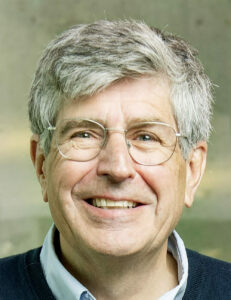
10:55 am: Yu-Shan Lin, Chemistry, Tufts University
Overcoming the Structural Challenges of Cyclic Peptide Design with Machine Learning
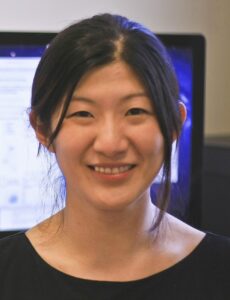
11:30 am: Milad Abolhasani, Chemical and Biomolecular Engineering, North Carolina State University
Accelerated Materials Discovery and Optimization Enabled by an Autonomous Fluidic Lab
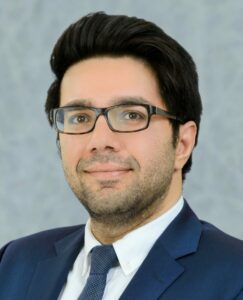
2:00 pm: Afternoon Welcome
- Milan Mrksich
- Richard Zare
2:05 pm: Brett Savoie, Chemical Engineering, Purdue University
General Machine Learning Strategies for Solving Chemical Deduction Problems
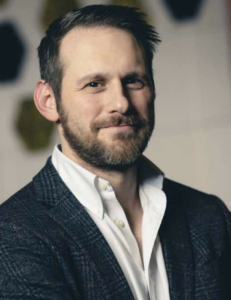
2:40 pm: Andrew Ferguson, Pritzker School of Molecular Engineering, University of Chicago
Machine Learning-Guided Directed Evolution of Functional Proteins
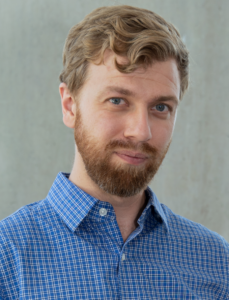
3:05 pm: Thomas Miller, Entos, Inc.
How Generative AI Solved the 1000-Fold Selectivity Grand Challenge in HER2 Cancer Drug Discovery
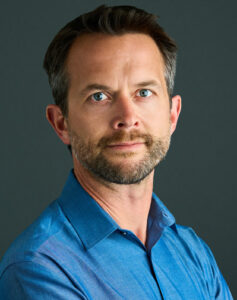
3:40 pm: Closing Remarks
- Milan Mrksich
Reception to follow.
John R. H. Blum Retires from Board of Directors after 44 Years
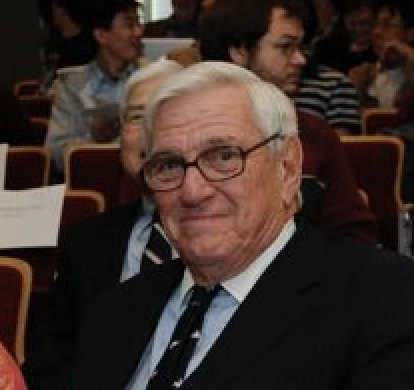 John R. H. Blum has retired from the Camille and Henry Dreyfus Foundation Board of Directors, after 44 years of service. Mr. Blum was elected to the Board of Directors in April 1979 and has held many leadership positions at the Foundation, including Vice President, Treasurer, Secretary, and Chair of the Compensation and Finance and Audit Committees.
John R. H. Blum has retired from the Camille and Henry Dreyfus Foundation Board of Directors, after 44 years of service. Mr. Blum was elected to the Board of Directors in April 1979 and has held many leadership positions at the Foundation, including Vice President, Treasurer, Secretary, and Chair of the Compensation and Finance and Audit Committees.
Mr. Blum has a distinguished career as an attorney. His many leadership positions include Chairman of Kings LaFayette Bank, President of Security Mortgage Investors, Partner at Richards O’Neil & Allegaert, and Commissioner of Agriculture for the State of Connecticut. He has been on the Board of Directors for other organizations such as Vista Mutual Funds and the Green-Wood Cemetery Association.
H. Scott Walter, Foundation President, commented: “On behalf of the Board of Directors and staff of the Dreyfus Foundation, I extend my sincere gratitude to Mr. Blum for more than four decades of service and leadership at the Foundation. We wish him the best in his future endeavors.”